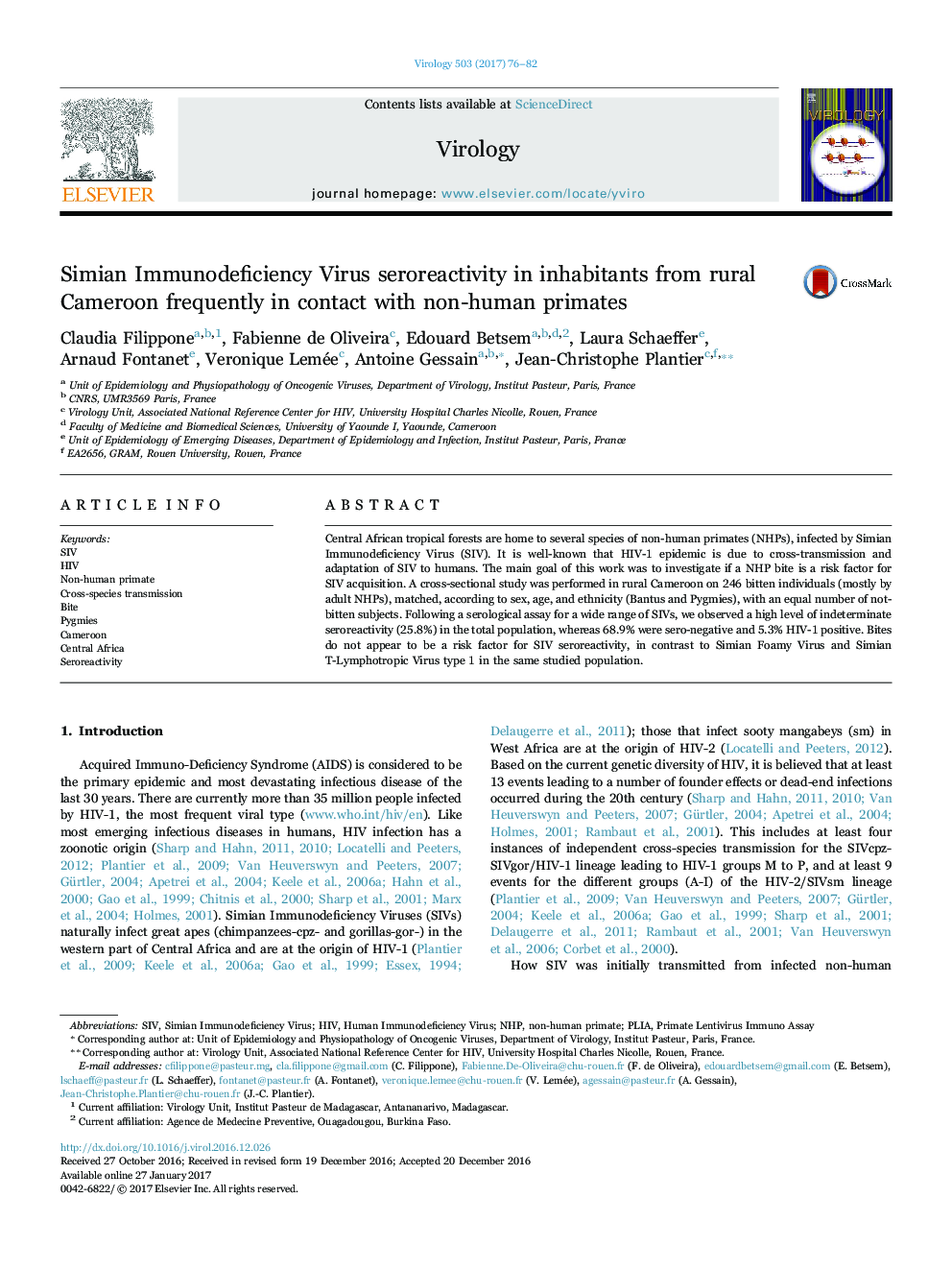| Article ID | Journal | Published Year | Pages | File Type |
|---|---|---|---|---|
| 5675084 | Virology | 2017 | 7 Pages |
â¢A pair-based study was performed on 492 individuals from rural Cameroon.â¢Bite by non-human primates was investigated as potential risk factor for SIV acquisition.â¢A high level of indeterminate sero-reactivity (25.8%) was observed in the total population.â¢No evidence of SIV infection was observed among individuals bitten by non-humanâ¢primates.
Central African tropical forests are home to several species of non-human primates (NHPs), infected by Simian Immunodeficiency Virus (SIV). It is well-known that HIV-1 epidemic is due to cross-transmission and adaptation of SIV to humans. The main goal of this work was to investigate if a NHP bite is a risk factor for SIV acquisition. A cross-sectional study was performed in rural Cameroon on 246 bitten individuals (mostly by adult NHPs), matched, according to sex, age, and ethnicity (Bantus and Pygmies), with an equal number of not-bitten subjects. Following a serological assay for a wide range of SIVs, we observed a high level of indeterminate seroreactivity (25.8%) in the total population, whereas 68.9% were sero-negative and 5.3% HIV-1 positive. Bites do not appear to be a risk factor for SIV seroreactivity, in contrast to Simian Foamy Virus and Simian T-Lymphotropic Virus type 1 in the same studied population.
